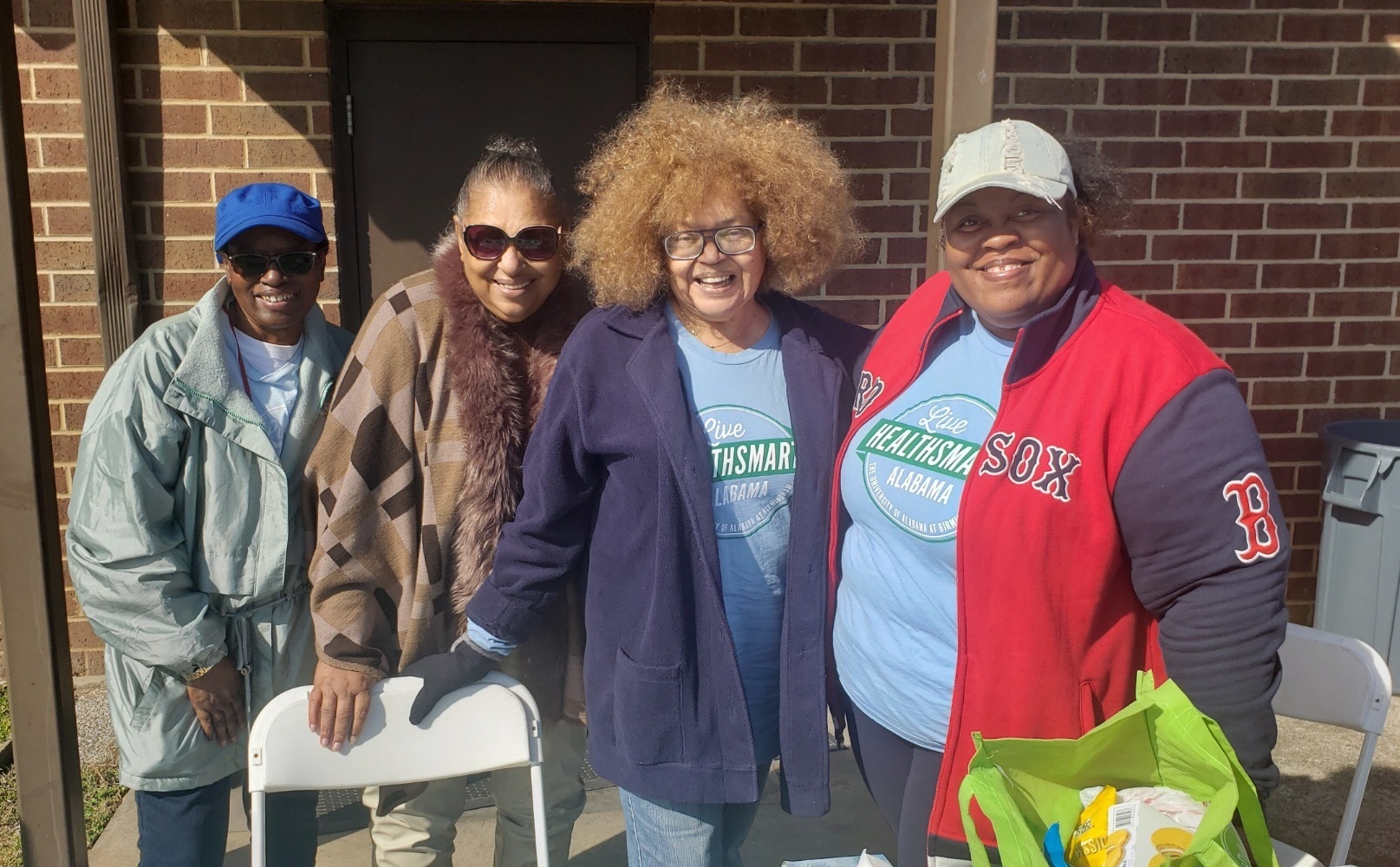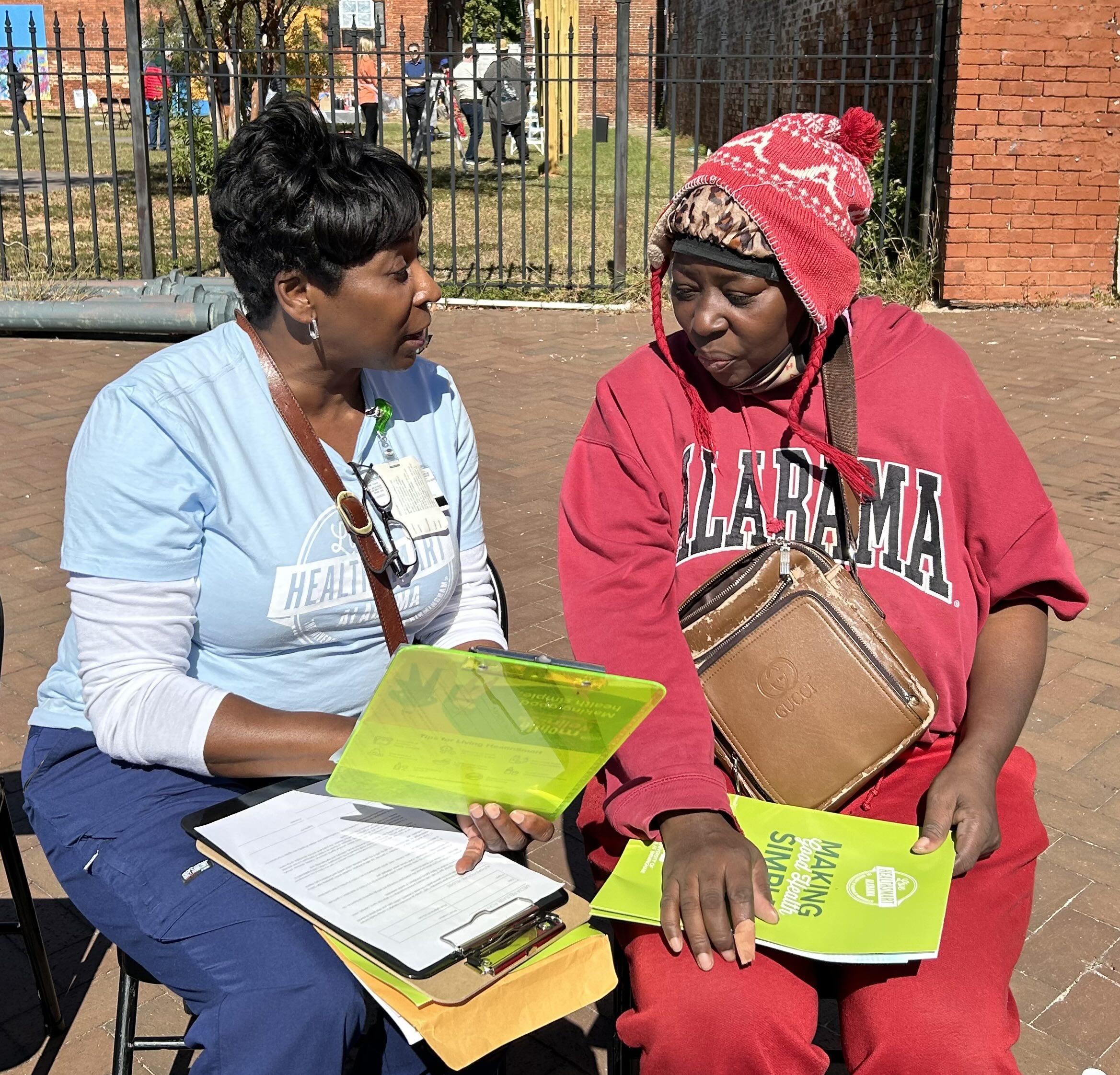
Accessing quality healthcare is oftentimes more complicated than simply scheduling a doctor’s appointment. For many, it can involve coordinating transportation, finding childcare, managing work schedules, accessing and navigating the healthcare system, or overcoming deep seeded fears. These challenges, along with many others that exist nationwide, can create barriers to care, especially in underserved communities.
Addressing Alabama’s Underserved Communities
Alabama is home to a significant number of rural and low-income communities where the likelihood of facing barriers to care is increased. In fact, 55 of Alabama’s 67 counties are considered rural, according to Alabama Public Health, and Alabama ranks as the 6th poorest state in the nation as 16.9% of the population live in poverty, according to America’s Health Rankings 2023 Annual Report. Live HealthSmart Alabama (LHSA), an initiative of the University of Alabama at Birmingham (UAB), is addressing some of these challenges through its four focus areas: Good Nutrition, Physical Activity, Education, and Prevention & Wellness.
Through its Prevention & Wellness focus, LHSA is improving access to care—with the ultimate goal of reducing instances of chronic disease. Its Mobile Wellness program is a major component of this focus area and is designed to meet people where they are, including locations such as libraries, churches, and recreation centers. This approach helps LHSA provide services such as wellness screenings, health education, and counseling, in locations that are familiar, convenient, and accessible for residents.
To ensure participants are supported beyond these Mobile Wellness events, LHSA relies on Community Health Coaches. Community Health Coaches are trained professionals working in the UAB Minority Health & Health Equity Research Center’s (MHERC) Community Health Coaches Core.
Community Health Coaches
The Community Health Coaches Core recently became an official service core of the UAB MHERC. However, the program stems back almost 20 years to the UAB Department of Preventive Medicine, under the leadership of Mona Fouad, M.D., MPH, Director of the UAB MHERC and CEO of Live HealthSmart Alabama. This approach began as a patient navigation program, focusing on overcoming barriers to clinical trial participation with the help of trusted individuals within the community. Using the knowledge and experience gained from the patient navigation program, Dr. Fouad established the Community Health Coaches Core.
“Our coaches serve as a bridge between the work we are trying to do as researchers and the communities we serve,” said Julie Schach, Director of the MHERC Community Health Coach Core. “They become a trusted source for this information.”
Today, the program includes three types of coaches: Coach Educators to provide health information and outreach, Coach Navigators, who implement programs, connect people to health services and engage partners, and Coach Coordinators, which offer disease-specific guidance and coordinate care. All of which play an important part in building trust between UAB and the community.
Making An Impact
One of these trusted individuals is Bridget Mills, a Community Health Coach working with LHSA in Selma, Alabama. Bridget grew up in a rural community where she experienced the hardships that come with limited access to healthcare. Now, she’s determined to create opportunities for others in her community.
“I come from a family of eight. Being born and raised in a rural community, I saw and even experienced some of those hardships, like not having a high-income level or health insurance,” said Bridget. “I made a personal commitment to become educated, break those family cycles, and to do more to show the next generation that there are greater possibilities.”
As a Community Health Coach with LHSA, Bridget works to establish a relationship with each of the participants that come to Mobile Wellness events. By developing these relationships, Bridget can hear the concerns of the community and the challenges they must overcome to make healthy choices. From there, she connects them with the appropriate resources, assuring the residents in her community feel supported.
“When I call a participant following a wellness screening, they’re surprised that we kept our promise to check in. They’re excited to know that we care. I let them know that Live HealthSmart Alabama is a full circle. We’re there to identify their needs, address barriers, and hold their hands through the process. Ultimately, our goal is to have healthier individuals, healthier families, and healthier communities. That’s what will lead to a healthier Alabama,” Bridget shares.
Continued Education For Coaches
The ability to connect with a wide range of individuals on a personal level is an important skill for Community Health Coaches. To strengthen these efforts, the Community Health Coach Core stresses the importance of continued education for its coaches. The first cohort, which includes eight participants including Bridget, is currently completing a 12-week community health worker certification program offered through Troy University. The program consists of 10 weeks of online learning followed by a two-week internship with an organization whose services are relevant to a community health worker’s role.
This program was designed to equip participants with the skills necessary for building trust and effective community outreach. The course aims to strengthen public health efforts, reduce health disparities, and help communities achieve health equity through prevention-focused strategies.
“It is our hope that this certification will allow us to go a little bit deeper about our specific work and the protocol level of each of the programs that our coaches are working on,” said Schach.
Building Healthier Communities
In addition to addressing health at the individual level, community coaches are also supporting the work of LHSA across its other focus areas. For example, in areas where access to fresh produce is limited, LHSA’s Mobile Market program brings fresh and nutritious grocery selections to the community. At these Mobile Market events, community coaches work with residents to identify any barriers that may exist and provide nutrition education and other local resources.
Similarly, community coaches assisted the LHSA built environment team in discovering that some communities weren’t exercising because their neighborhoods lacked sidewalks. The LHSA’s built environment team responded by installing sidewalks and making other improvements to the built environment that promote safe physical activity. By meeting these needs, LHSA helped remove barriers and empowered residents to make healthier decisions in their daily lives.
“Being a Community Health Coach is about meeting people where they are, understanding their stories and needs, and finding out how I can help them overcome those barriers to making healthy choices,” said Bridget. “At the end of the day, it’s about educating and empowering people—leading every individual toward being more informed and using that knowledge to make their lives better.”
Through its Prevention & Wellness focus, and with help from the MHERC's Community Health Coaches Core, LHSA is working to make good health simple for all Alabamians. The core plays such an important role in this effort by helping to address the broader challenges within each community. With dedicated coaches like Bridget on the ground, LHSA can ensure that residents not only receive the services they need, but also feel supported at each step in their journey to healthy living.